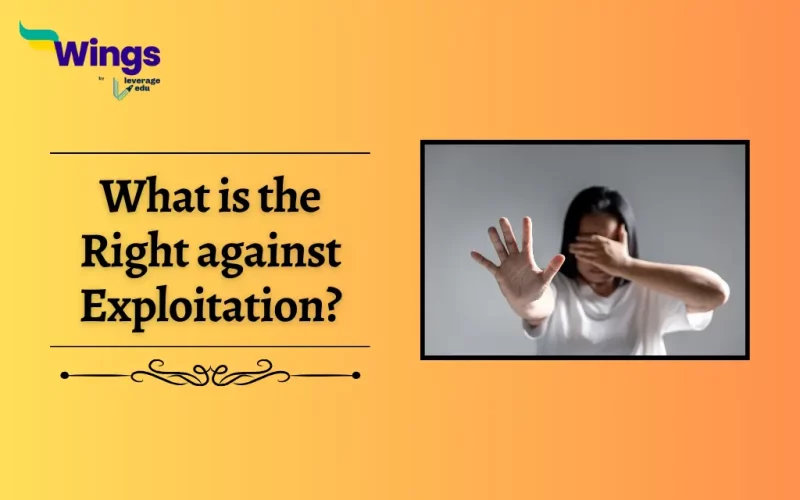In India, the Right Against Exploitation is a Constitutional provision under Articles 23 and 24. Moreover, Article 23 prohibits forced labour and human trafficking, while Article 24 prohibits child labour in hazardous industries. Furthermore, these Constitutional protections reflect India’s commitment to stopping exploitative practices and guaranteeing the welfare of its citizens. In this blog, we shall explore all the possible dimensions related to Article 23 and Article 24 as part of the Right against Exploitation
Article 23: Prohibition of Traffic in Human Beings and Forced Labor
Table of Contents [show]
Article 23 of the Indian Constitution explicitly prohibits all forms of forced labour. Here is a comprehensive analysis of the same:
- Definition of Forced Labor: It defines “forced labour” as any work or service which is exacted from a person under the threat of a penalty. Moreover, for which the person has not offered themselves voluntarily.
- Exceptions: This prohibition does not apply to compulsory military service or any work required during a state of emergency.
- Protection of Human Dignity: The main purpose of Article 23 is to protect the dignity of individuals by preventing exploitative labour practices.
- Enforcement: Laws such as the Bonded Labor System (Abolition) Act 1976, to enforce this Constitutional provision and eradicate bonded labour.
- Punishments: Violation of Article 23 can lead to penalties and imprisonment as prescribed by law.
- Human Trafficking: While Article 23 directly addresses forced labour, it also indirectly discourages human trafficking.
- International Commitments: India’s adherence to Article 23 with its international obligations, including conventions of the International Labour Organization (ILO).
Thus, Article 23 is a crucial component of India’s constitutional framework, reflecting its commitment to protecting the rights and dignity of its citizens.
Also Read: What Is Representative Democracy?
Article 24: Prohibition of Employment of Children in Factories
Furthermore, here are the key points regarding Article 24 of the Indian Constitution:
- Prohibition of Child Labor: Article 24 of the Indian Constitution prohibits the employment of children under the age of 14 years in factories, mines, or any hazardous employment.
- Protection of Children’s Rights: The primary objective of Article 24 is to protect the rights, health, and well-being of children by preventing their engagement in dangerous and harmful work.
- Definition of Hazardous Employment: It specifically addresses hazardous employment, which can be harmful to the physical or mental health of children.
- Exceptions: Article 24 allows children to work in non-hazardous family-based occupations or the entertainment industry, subject to certain conditions.
- Enforcement: Laws such as the Child Labour (Prohibition and Regulation) Act have been enacted to enforce Article 24 and regulate child labour.
- Penalties: Violation of Article 24 can lead to penalties and legal action against employers who engage children in prohibited forms of labour.
This provision underscores India’s commitment to ensuring the welfare, education, and overall development of its young population.
Also Read: What Is Federalism?
Right against Exploitation Case Law
The Right against Exploitation in Articles 23 and 24 of the Indian Constitution, protects people from forced labor.
- Landmark cases like People’s Union for Democratic Rights vs. Union of India (1983) broadened the definition of “force” under Article 23.
- In M.C. Mehta vs. State of Tamil Nadu (1997), the Supreme Court of India prohibited child labour in hazardous industries.
Thus, these cases highlight the Judiciary’s role in protecting vulnerable populations from exploitation.
Quiz Time
Results
#1. What is the primary focus of Article 24 of the Indian Constitution?
#2. How does Article 23 define “forced labor”?
#3. What does Article 23 of the Indian Constitution prohibit?
Related Blogs
Lastly, we hope you liked our blog and gained an understanding of What is Hung Parliament in India. Moreover, you may even read more blogs and empower yourself with knowledge regarding Civics and Polity!
 One app for all your study abroad needs
One app for all your study abroad needs


















 45,000+ students trusted us with their dreams. Take the first step today!
45,000+ students trusted us with their dreams. Take the first step today!
